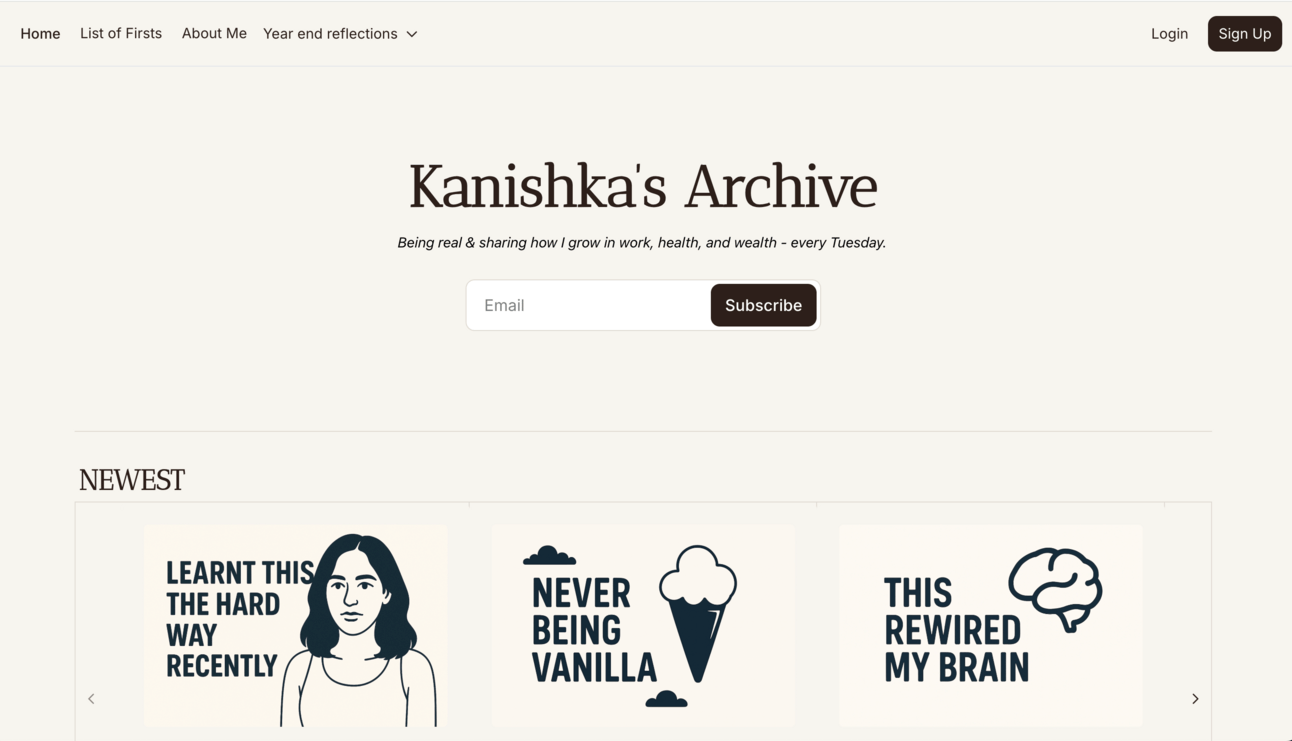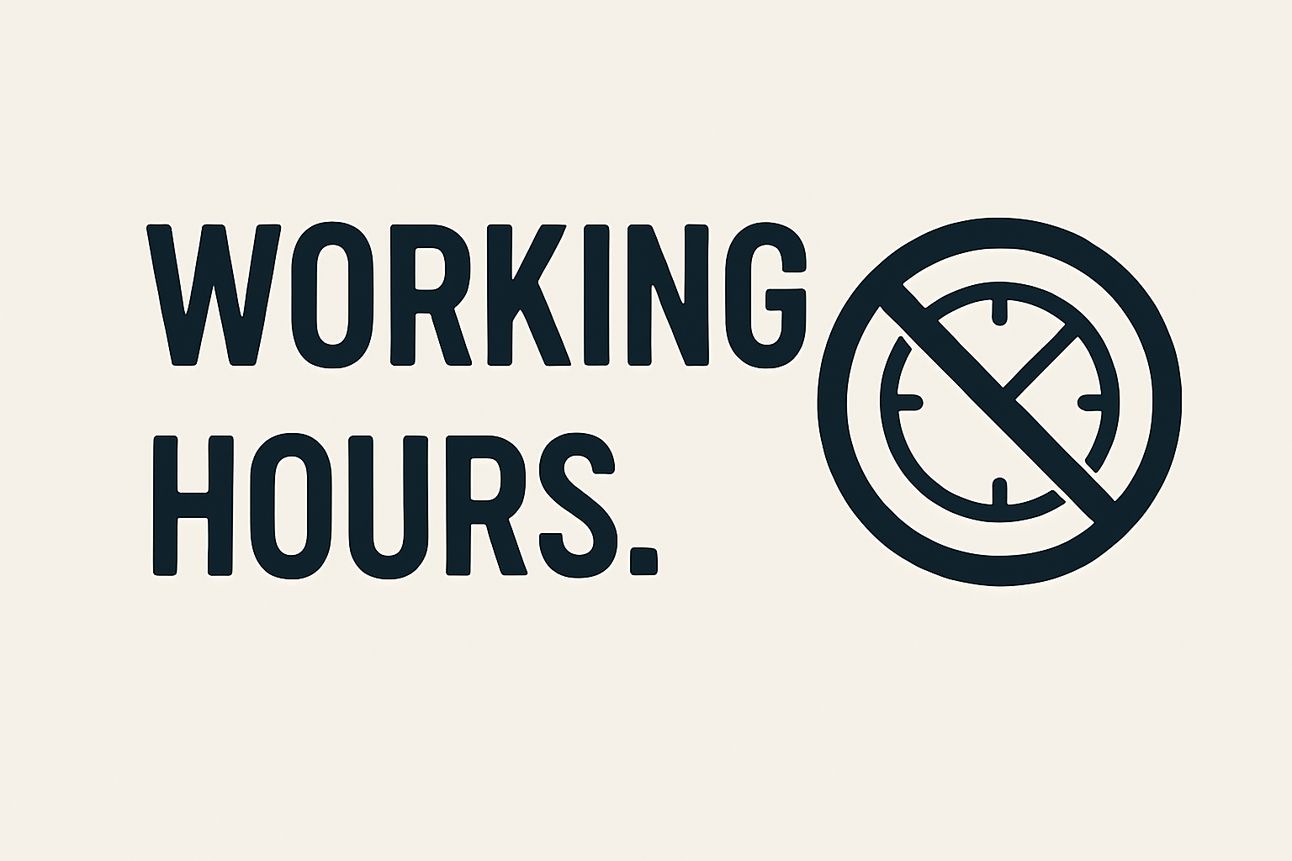There’s a story about Hemingway, writing at dawn before the world woke up.
Another about Maya Angelou, who’d rent a hotel room to write from 6 A.M. to 2 P.M. every day.

“I have kept a hotel room in every town I’ve ever lived in. I rent a hotel room for a few months, leave my home at six, and try to be at work by six-thirty. To write, I lie across the bed, so that this elbow is absolutely encrusted at the end, just so rough with callouses. I never allow the hotel people to change the bed, because I never sleep there. I stay until twelve-thirty or one-thirty in the afternoon, and then I go home and try to breathe.”
And of course, Edison, who never kept a clock in his lab because his mind didn’t operate on one.
Creativity, progress, meaningful work — none of it follows a schedule.

And the older I get, the more I believe this:
You can’t build a life you love
inside someone else’s calendar.
The 2 A.M. Truth
Some of my best ideas don’t come when I sit down to “work.”
They come while I’m on a walk.
Or sipping coffee.
Or struggling to fall asleep at 2:03 A.M.
Because I’ve only ever worked freelance.
And now at beehiiv, the focus has never been when I worked.
It’s always been:
Was it good?
Did it move the needle?
Did it help someone?
That’s what matters.
“Working hours” are a construct
When I think of “working hours,” I don’t just think of schedules.
I think of limitations.
Of treating inspiration like it works 9 to 5.
Of telling your brain to be brilliant between Google meetings and Slack notifications.
But life doesn’t work like that.
Neither does great work.
The truth is:
Some of my most productive Tuesdays start at 2 P.M.
Some Saturdays feel like Tuesdays.
Some mornings are spent reading, recovering, or just being a human.
And sometimes I write something at 2 A.M. that I couldn’t get out all day.
I’ve built a rhythm that works with me, not against me.
And in doing that, I’ve learned to let go of guilt.
Because guilt has no business in a life you’re designing from scratch.
How to build a life where “working hours” don’t exist
This is the part that answers: “But how do you do this?”
Here’s what’s worked for me (and what I’d recommend to anyone trying to get off the clock):
1. Own a skill that’s yours entirely
For me, it’s writing.
Because I don’t need permission to begin.
I don’t need a team to review.
I don’t need to schedule a call.
Whether I’m on a flight, at my desk, or sitting in bed —
I can start anytime.
It could be coding, designing, building a product, editing, or speaking.
Whatever it is, the more your output depends on you,
the easier it becomes to let go of “working hours.”
2. Delete the schedule. Keep the output.
Let go of the timeline.
That doesn’t mean don’t work — don’t limit the when.
Some nights, I’m writing till 3.
The goal isn’t just to work more.
It’s to find when you naturally work best, and build your days around that.
3. Accountability beats structure
You can’t live this way if you’re lazy.
That’s the trade-off.
When no one’s watching, it’s easy to disappear.
But it’s also where you build discipline, self-trust, and consistency.
When you stop being tracked by the hour,
you start measuring impact in a different way:
→ Did I move the needle?
→ Did I create something worth sharing?
→ Did I make space for what matters?
That’s the work.
4. Give your brain a break — it’ll reward you later
Some days I don’t “work” in the traditional sense.
I read a book, go on a walk, call a friend, and spend extra time at the gym.
But those moments often lead to:
→ A new idea
→ A new way to solve something I’ve been stuck on
→ A reset I didn’t know I needed
The world wants you to be always on.
But some of your best breakthroughs happen when you step away, just enough.
And when they do, you’ll be glad you weren’t booked in a meeting.
Final thought
This isn’t an anti-work rant.
It’s a reminder that good work isn’t about how many hours you log —
It’s about how deeply you care
and how freely you can show up when your mind is ready.
Stop living by someone else’s calendar.
Start designing your rhythm.
Because once you delete “working hours” from your vocabulary,
you get to build a life that doesn’t need to ask for permission.
And that’s when the magic starts to happen.
Until then—take care, and talk soon, bestie 💌
P.S. I finally gave my website a glow-up.

Do we like it?

signing off…
- Kanishka

